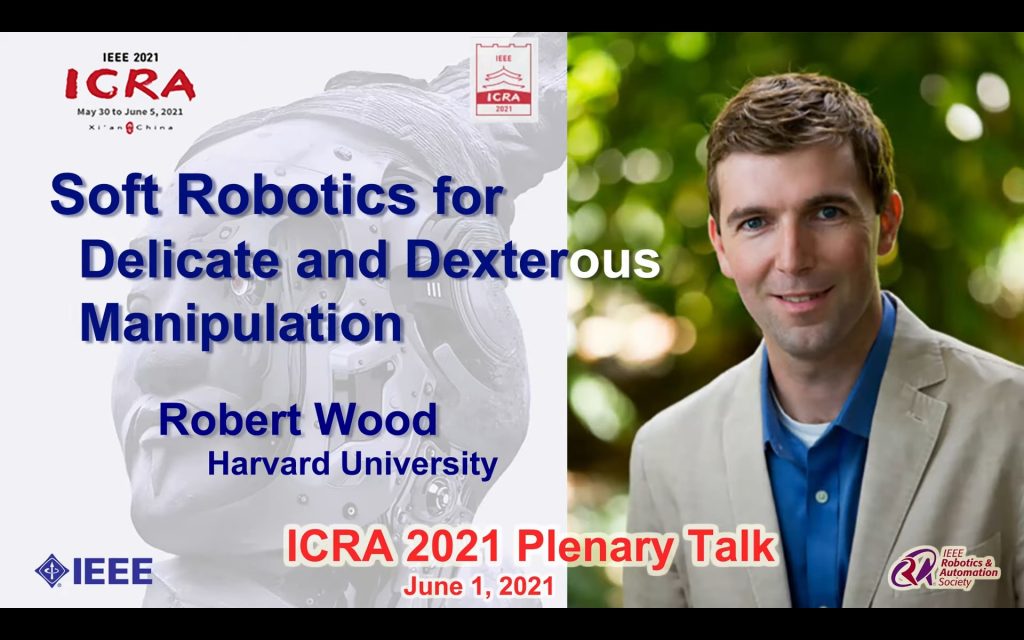
Robohub.org
Robert Wood’s Plenary Talk: Soft robotics for delicate and dexterous manipulation

Robotic grasping and manipulation has historically been dominated by rigid grippers, force/form closure constraints, and extensive grasp trajectory planning. The advent of soft robotics offers new avenues to diverge from this paradigm by using strategic compliance to passively conform to grasped objects in the absence of active control, and with minimal chance of damage to the object or surrounding environment. However, while the reduced emphasis on sensing, planning, and control complexity simplifies grasping and manipulation tasks, precision and dexterity are often lost.
This talk will discuss efforts to increase the robustness of soft grasping and the dexterity of soft robotic manipulators, with particular emphasis on grasping tasks that are challenging for more traditional robot hands. This includes compliant objects, thin flexible sheets, and delicate organisms. Examples will be drawn from manipulation of everyday objects and field studies of deep sea sampling using soft end effectors
Bio: Robert Wood is the Charles River Professor of Engineering and Applied Sciences in the Harvard John A. Paulson School of Engineering and Applied Sciences and a National Geographic Explorer. Prof. Wood completed his M.S. and Ph.D. degrees in the Dept. of Electrical Engineering and Computer Sciences at the University of California, Berkeley. His current research interests include new micro- and meso-scale manufacturing techniques, bioinspired microrobots, biomedical microrobots, control of sensor-limited and computation-limited systems, active soft materials, wearable robots, and soft grasping and manipulation. He is the winner of multiple awards for his
work including the DARPA Young Faculty Award, NSF Career Award, ONR Young Investigator Award, Air Force Young Investigator Award, Technology Review’s TR35, and multiple best paper awards. In 2010 Wood received the Presidential Early Career Award for Scientists and Engineers from President Obama for his work in microrobotics. In 2012 he was selected for the Alan T. Waterman award, the National Science Foundation’s most prestigious early career award. In 2014 he was named one of National Geographic’s “Emerging Explorers”, and in 2018 he was an inaugural recipient of the Max Planck-Humboldt Medal. Wood’s group is also dedicated to STEM education by using novel robots to motivate young students to pursue careers in science and engineering.
tags: c-Research-Innovation




